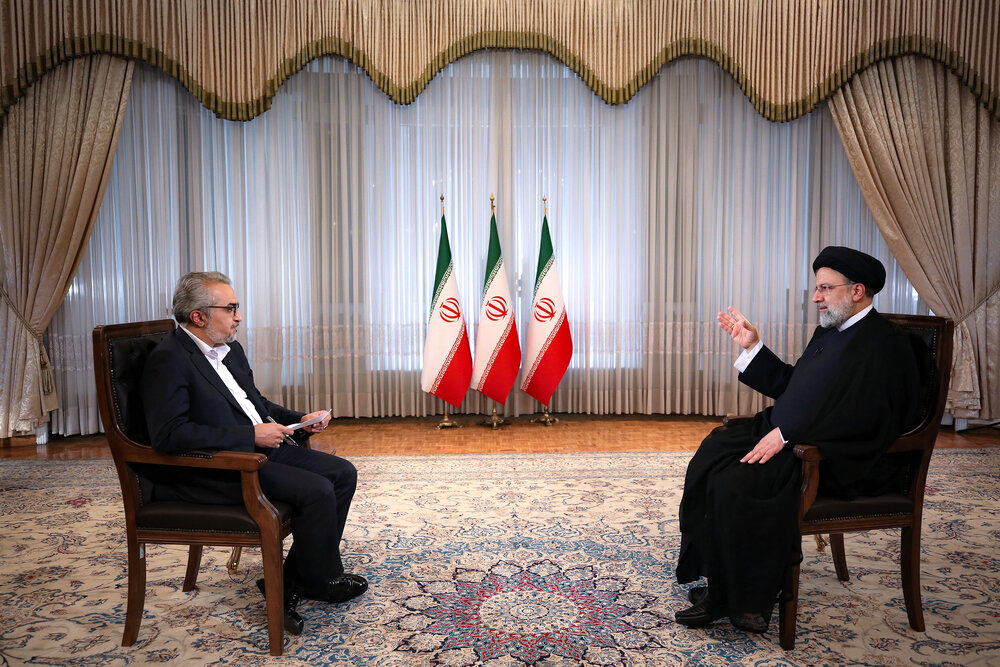What Iran new economic reforms mean for Vienna talks?

TEHRAN – The administration of Ayatollah Ebrahim Raisi has begun rolling out new economic reforms that have long been eschewed by previous administrations for their possible painful fallouts.
On Monday night, 72 million Iranian citizens received SMS messages from their back accounts informing them that a government handout of 3,000,000 – 4,000,000 million rials (about $10-$14) has been deposited into their bank accounts, minutes after President Raisi wrapped up a live televised speech in which he explained the reasons behind his new economic reforms.
“Reforming how basic goods subsidies is paid is difficult but this difficult decision should not be eschewed,” he told the Iranian people.
Ayatollah Raisi explained in detail why his administration had to swallow the bitter pill of cutting government subsidies for a number of basic goods and medicines, a move that almost all his predecessors refused to make for fear of public backlash.
For so long, the Iranian government has been allocating billions of dollars in subsidies for basic goods and services such as flour, cooking oil, chickens, eggs, and sugar among other things. Considering that most of these staples are imported from abroad, the government had to provide much-needed hard currency to make sure that ordinary people have access to the food they need on their table. But the government says huge corruption took place in the process of importing subsidized food and that the subsidy system needs to be reformed as soon as possible.
The Raisi administration says it is not cutting government subsidies for basic goods. The way subsidies are allocated, instead, will change. Under new reforms, people will be given monthly food vouchers to buy basic goods at subsidized rates. In other words, the government says it seeks to change the current piecemeal subsidy system into a more targeted, smart one.
The administration is all in for the new economic measures. And it has the support of the Leader of the Islamic Revolution, Ayatollah Seyed Ali Khamenei. “The measures the [Raisi] administration is taking today are important and that everyone should help including the [government] branches and the various apparatuses as well as the people so that the administration, God willing, achieve [positive] results,” the Leader said in a recent speech delivered in a meeting with workers.
The measures have been described by Raisi himself as “economic surgery” because they are painful and necessary. In addition, Raisi has been hailed as a president staking his credibility to save the economy despite the risks associated with reforms.
Aside from the economic impacts of reforms, the administration’s decision to proceed with its economic measures could have implications at political and diplomatic levels. Painful reforms are being implemented while talks over reviving the 2015 Iran nuclear deal continue to hang in the balance for the second month in a row with no silver lining in sight.
On Tuesday, the European Union’s coordinator of the Vienna talks, Enrique Mora, arrived in Tehran for meetings with Iranian officials. There are hopes for a breakthrough. But the chances of the deadlock over the talks getting broken remains low. Iranian officials told the press that if Mora has come to Tehran to urge Iran to back down on its demands, then one should not expect much coming out of his trip.
Embarking on painful economic reforms while Iran continues to be under sanctions could also signal that the differences currently clouding the talks are here to stay.
President Raisi has said time and again that he is not going to tie the economy to what comes out of the Vienna talks. He made it clear that his management of the country’s economy will by no means be impacted by the Vienna talks. And current reforms are a translation of that position on the ground.
But his economic measures have another connotation: That Iran is undertaking painstaking reforms means that the other side in the talks should not expect Iran to make further concessions to revive the JCPOA. The Raisi administration is seemingly signaling that it is capable of running the country regardless of what happens to the JCPOA.
Leave a Comment